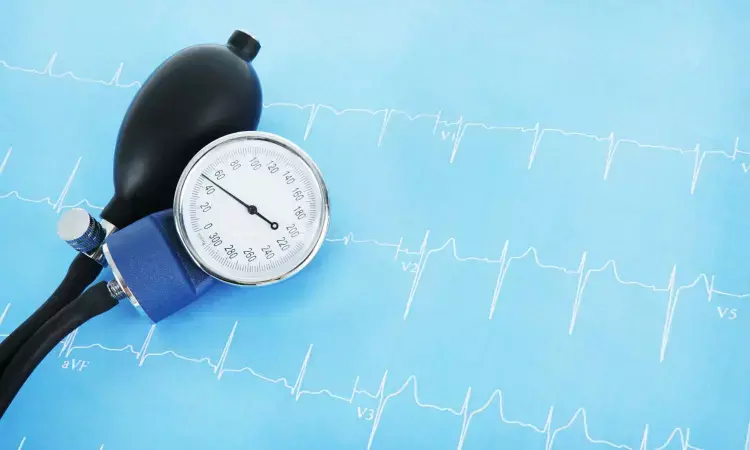- Home
- Medical news & Guidelines
- Anesthesiology
- Cardiology and CTVS
- Critical Care
- Dentistry
- Dermatology
- Diabetes and Endocrinology
- ENT
- Gastroenterology
- Medicine
- Nephrology
- Neurology
- Obstretics-Gynaecology
- Oncology
- Ophthalmology
- Orthopaedics
- Pediatrics-Neonatology
- Psychiatry
- Pulmonology
- Radiology
- Surgery
- Urology
- Laboratory Medicine
- Diet
- Nursing
- Paramedical
- Physiotherapy
- Health news
- Fact Check
- Bone Health Fact Check
- Brain Health Fact Check
- Cancer Related Fact Check
- Child Care Fact Check
- Dental and oral health fact check
- Diabetes and metabolic health fact check
- Diet and Nutrition Fact Check
- Eye and ENT Care Fact Check
- Fitness fact check
- Gut health fact check
- Heart health fact check
- Kidney health fact check
- Medical education fact check
- Men's health fact check
- Respiratory fact check
- Skin and hair care fact check
- Vaccine and Immunization fact check
- Women's health fact check
- AYUSH
- State News
- Andaman and Nicobar Islands
- Andhra Pradesh
- Arunachal Pradesh
- Assam
- Bihar
- Chandigarh
- Chattisgarh
- Dadra and Nagar Haveli
- Daman and Diu
- Delhi
- Goa
- Gujarat
- Haryana
- Himachal Pradesh
- Jammu & Kashmir
- Jharkhand
- Karnataka
- Kerala
- Ladakh
- Lakshadweep
- Madhya Pradesh
- Maharashtra
- Manipur
- Meghalaya
- Mizoram
- Nagaland
- Odisha
- Puducherry
- Punjab
- Rajasthan
- Sikkim
- Tamil Nadu
- Telangana
- Tripura
- Uttar Pradesh
- Uttrakhand
- West Bengal
- Medical Education
- Industry
Do People with High Blood Pressure Have Higher Risk of Alzheimer's Disease?

People 60 and older with untreated high blood pressure may have an increased risk of Alzheimer's disease compared to both people who have been or are being treated for high blood pressure as well as people without the chronic condition. The new research, a meta-analysis, is published in the August 14, 2024, online issue of Neurology®, the medical journal of the American Academy of Neurology. These results do not prove that untreated high blood pressure causes Alzheimer’s disease, they only show an association.
“High blood pressure is a leading cause of stroke and cerebrovascular disease, and yet it can be controlled with medication, reducing a person’s risk of these diseases,” said author Matthew J. Lennon, MD, PhD, of the University of New South Wales in Australia. “Taking blood pressure medications has also been found in previous research to reduce a person’s risk of dementias overall, but less is known about how blood pressure affects a person’s risk of Alzheimer’s disease. Our meta-analysis looked at older people and found that not treating blood pressure may indeed increase a person’s risk.”
For the meta-analysis, researchers looked at 31,250 people with an average age of 72 who were enrolled in 14 studies that measured cognitive change and dementia diagnosis over time. Participants were from Australia, Brazil, China, France, Germany, Greece, Italy, Japan, Korea, Nigeria, Republic of Congo, Spain, Sweden and the United States. Participants were followed for an average of four years and 1,415 developed Alzheimer’s disease.
For each participant, researchers looked at blood pressure measurements, high blood pressure diagnosis and the use of blood pressure medication. They found 9% had untreated high blood pressure, 51% were taking blood pressure medications, 36% did not have high blood pressure and 4% were noted as uncertain.
After adjusting for factors such as age, sex and education, researchers found people with untreated high blood pressure had 36% increased risk of Alzheimer’s disease when compared to people without high blood pressure, and a 42% increased risk of Alzheimer’s when compared to people with the condition who were taking blood pressure medications.
“Our meta-analysis that included people from around the world found that taking blood pressure medications was associated with decreased risk of Alzheimer’s disease throughout later life,” said Lennon. “These results suggest that treating high blood pressure as a person ages continues to be a crucial factor in reducing their risk of Alzheimer’s disease.”
A limitation of the meta-analysis was that definitions for high blood pressure varied by location, which could lead to possible discrepancies in diagnosis.
Reference:
Matthew J. Lennon, Darren M. Lipnicki, Ben Chun Pan Lam, John D. Crawford, Aletta E. Schutte, Ruth Peters, Therese Rydberg-Sterner,Blood Pressure, Antihypertensive Use, and Late-Life Alzheimer and Non-Alzheimer Dementia Risk An Individual Participant Data Meta-Analysis, Neurology, https://doi.org/10.1212/WNL.0000000000209715.
Dr Kamal Kant Kohli-MBBS, DTCD- a chest specialist with more than 30 years of practice and a flair for writing clinical articles, Dr Kamal Kant Kohli joined Medical Dialogues as a Chief Editor of Medical News. Besides writing articles, as an editor, he proofreads and verifies all the medical content published on Medical Dialogues including those coming from journals, studies,medical conferences,guidelines etc. Email: drkohli@medicaldialogues.in. Contact no. 011-43720751


